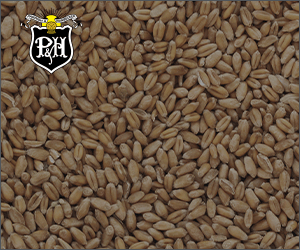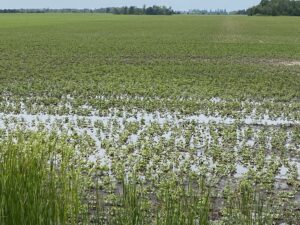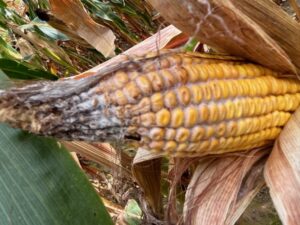Three Oaks Cabin
FINDING HOPE AND HEALING

FARMER MENTAL HEALTH HAS BEEN AT THE TOP OF FARM MEETING AGENDAS in the past few years after a landmark 2015 study and a 2022 follow-up study by epidemiologist Dr. Andria Jones Bitton and associates from the Ontario Veterinary College at the University of Guelph found that farmers were at higher risk of depression, anxiety, and other mental health concerns than the general public.
The 2022 study — which surveyed 1,200 Canadian farmers during the height of the Covid-19 pandemic — indicated that 76 per cent of farmers surveyed experienced moderate to high perceived stress; suicide ideation was twice as high as the general public; and one in four farmers surveyed said that their life was not worth living, wished they were dead, or had thought about taking their life in the past 12 months.
The nature of farm work, which is often done in isolation, with long hours and a lack of control over the weather, input costs, and commodity prices, all contribute to the stress and negative thoughts that farmers report experiencing.
GETTING THE MESSAGE OUT
The Ontario Agricultural Conference (OAgC), a joint effort by the Southwest Agricultural Conference, the Midwest Agricultural Conference, and the Eastern Ontario Crop Conference that offers virtual and in-person agricultural events across the province in January, has taken a leadership role in getting the message out about farmer mental health by offering sessions to help farmers and farm families understand the signs, symptoms, and causes of mental health challenges. Sessions over the past few years have offered ways to help alleviate stress, anxiety, and depression and how to help friends, neighbours, and colleagues who may be suffering.
As part of their 2024 online offering, the OAgC hosted an interview with Al and Diane Bergsma of Shetland, Ontario, who shared their tragic, first-hand experience with farmer mental health: in November 2020, they lost their son, 27-year-old Dalles, who died by suicide.
Dalles, who, the Bergsmas say, was always destined to be a farmer, was also a first responder with the local volunteer fire department.
“This is really a place where those two worlds intersect. The stresses, the challenges that farmers and first responders face, are very, very high. They are two of the most stressful occupations,” says Al. “The weight on his shoulders was the trauma he experienced at the fire department. Some of it was carried around, undealt with.”
The loss came as a shock to everyone who knew Dalles.
“While the weight of the world was bearing down on his shoulders, we didn’t see what he was dealing with; we didn’t have the tools to deal with the incremental weight that was on his shoulders. While we were building for the future and the succession of taking over the business, we lost sight; we didn’t see what he was dealing with. It definitely caught everyone who knew him… totally off guard. We were blind-sided when he was suddenly gone.”
A HEALING JOURNEY
After losing Dalles, Diane says they started to learn more about the prevalence of mental health challenges and the high rates of suicide and suicide ideation among farmers and first responders — something they had known very little about.
“Once we knew those [statistics], and that our son was not in isolation in that tragedy, we felt compelled to do something.”
For the Bergsmas, their ‘something’ is Three Oaks Cabin — built on their farm’s woodlot, the cabin will be a place for farmers and first responders to find refuge from stress and anxiety.
“Part of our healing and regrouping has come from the prospect of helping others through Three Oaks,” says Diane.
OFFERING RESOURCES AND SUPPORT
Set to open in 2024, Three Oaks Cabin will offer not only a place for those experiencing mental fatigue to rest, reflect, reorient, and reconnect, it will also provide ongoing resources, support, and counselling in partnership with the National Farmers Mental Health Alliance (NFMHA). Services offered through the NFMHA will include self-directed programming and follow-up therapy from a qualified therapist.
“We felt it was very important to find registered therapists, but also ones that were acquainted with the culture and the perils and pitfalls of both of those occupations [farming and first response],” says Diane.
Support from the community has been integral to the success of the project to date; a registered charity, Three Oaks Cabin has benefited from fundraising events, including a 5K Run and a ‘Shifting Gears’ fundraising tractor parade, this year scheduled for August 17 in Shetland. Local businesses have also supported the project throughout the building and furnishing stages of the cabin.
Funds raised will support ongoing mental health services for visitors to the cabin; the stay itself will be free. There are also plans to use the cabin for education and awareness workshops and events, to further the discussion about mental health in the agriculture and first responder communities.
For the Bergsmas, the opening of the cabin is another step on their healing journey.
“I think if someone else can be filled with hope again, or able to pick up the pieces, or if they are in a spot where they can still pick up the pieces, there is beauty in our ashes — that’s where we can find hope and healing,” says Diane.
For more information about Three Oaks Cabin, to make a referral, or to make a donation, visit www.threeoakscabin.com. •


























